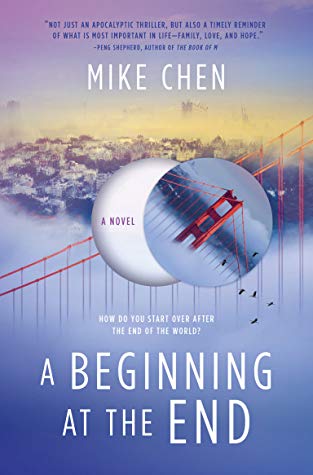The Leaning Pile of Books is a feature where I discuss books I got over the last week—old or new, bought or received in the mail for review consideration (most of which are unsolicited books from publishers). Since I hope you will find new books you’re interested in reading in these posts, I try to be as informative as possible. If I can find them, links to excerpts, author’s websites, and places where you can find more information on the book are included.
This covers multiple weeks since there hasn’t been a lot of book mail since the last one of these posts, plus I was working on last week’s review of A Spark of White Fire (Celestial Trilogy #1) by Sangu Mandanna. I found this Mahabharata-inspired space opera to be incredibly engaging—engaging enough that I pre-ordered the soon-to-be-released sequel, A House of Rage and Sorrow!
And now, the most recent book arrivals…
A Hero Born (Legends of the Condor Heroes #1) by Jin Yong; translated by Anna Holmwood
An English translation of the first volume in acclaimed Chinese author Jin Yong’s Legends of the Condor Heroes will be released in the US for the first time on September 17 (hardcover, ebook, audiobook). The publisher’s website has an excerpt from A Hero Born, and The Bookseller has an interview with translator Anna Holmwood about Jin Yong’s work and influence and her work on this English edition.
The next three installments in this series are scheduled for release in 2020 and 2021:
A Bond Undone, translated by Gigi Chang — March 2020
A Snake Lies Waiting — September 2020
A Heart Divided — March 2021
The epic Chinese classic and phenomenon published in the US for the first time!
A fantastical generational saga and kung fu epic, Jin Yong’s A Hero Born is the classic novel of its time, stretching from the Song Empire (China 1200 AD) to the appearance of a warlord whose name will endure for eternity: Genghis Khan. Filled with an extraordinary cast of characters, A Hero Born is a tale of fantasy and wonder, love and passion, treachery and war, betrayal and brotherhood.
And then a hero is born…
After his father, a Song patriot, was murdered, Guo Jing and his mother fled to the plains and joined Genghis Khan and his people. Loyal, humble and driven, he learned all he could from the warlord and his army in hopes of one day joining them in their cause. But what Guo Jing doesn’t know is that he’s destined to battle an opponent that will challenge him in every way imaginable and with a connection to his past that no one envisioned.
With the help and guidance of his shifus, The Seven Heroes of the South, Guo Jing returns to China to face his foe and carry out his destiny. But in a land divided by treachery and war, betrayal and ambition, he’ll have to put his courage and knowledge to the test to survive.
Novice Dragoneer (Dragoneer Academy #1) by E. E. Knight
Novice Dragoneer, the first book in a new series by Compton Crook Award–winning author E. E. Knight, will be released on November 5 (trade paperback, ebook, audiobook).
Goodreads currently has a US giveaway for a copy running through September 15, and a book tour event in Naperville, IL, is scheduled on November 6.
In the first book in an exciting new coming-of-age fantasy series from the author of the Age of Fire series, an impoverished girl enters into a military order of dragonriders, but her path won’t be as easy or as straightforward as she expected.
Fourteen-year-old Ileth grew up in an orphanage, and thanks to her stutter was never thought to be destined for much beyond kitchen work and cleaning. But she’s dreamed of serving with the dragons ever since a childhood meeting with a glittering silver dragon and its female dragoneer. For years she waits, and as soon as she is old enough to join, Ileth runs away to become a novice dragoneer at the ancient human-dragon fortress of the Serpentine.
While most of her fellow apprentices are from rich and influential families, Ileth must fight for her place in the world, even if it includes a duel with her boss at the fish-gutting table. She’s then sent off to the dragon-dancers after a foolish kiss with a famously named boy and given charge of a sickly old dragon with a mysterious past. But she finds those trials were nothing when she has to take the place of a dead dragoneer and care for his imprisoned dragon in enemy lands. . . .
Additional Book(s):
- Boundless: A Drizzt Novel (Generations #2) by R. A. Salvatore (Release Date: September 10; Featured in The Leaning Pile of Books in May)


















